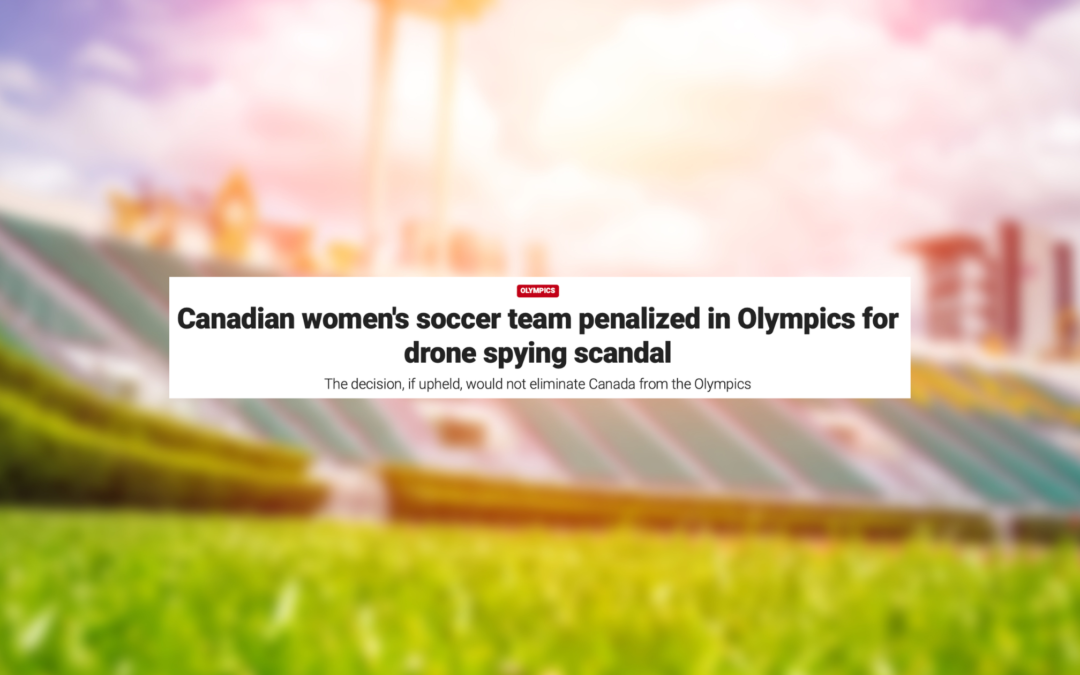Article written by FSQ’s Director of Sport, Matt Young
In the first week of the Olympics and with less than two years until our next appearance on the world stage, we are confronted once again with the consequences of a flawed culture within the Canadian sports system. The ripple effects of this situation will undoubtedly reach the grassroots level, impacting numerous individuals and communities. Our hearts go out to the athletes who were unaware of the unethical tactics being employed; it is deeply unjust for their Olympic dreams to be tarnished by actions they did not condone or participate in.
We commend the swift response and transparency from the newly elected leadership at the Canadian Soccer Association (CSA). As this situation unfolded, many closely watched to see if the CSA’s actions would align with the promises made during their campaign bids and appointments. Thus far, they have.
A significant step forward would be for everyone with knowledge of this tactic to come forward, acknowledge their awareness, issue an apology and resign
A significant step forward would be for everyone with knowledge of this tactic to come forward, acknowledge their awareness, issue an apology and resign. Such accountability is crucial to fostering a new and positive sport culture, yet it remains uncertain whether this will occur. The challenge of implementing a new culture persists when those complicit in perpetuating the existing one continue to hold positions of influence. And this is what frequently happens throughout our sport system. Alternatively, the guilty parties fail forward and show up, somewhere else, in another sport.
What follows will likely be an inquiry, where we may hear deflections of responsibility, with excuses such as “it’s common practice”. These justifications are reminiscent of a child’s excuse of jumping off the bridge because Johnny did it rather than the response of a professional. Similarly, those who claim they were coerced into participating are complicit if they choose to remain silent or comply. This is black-and-white: knowingly contributing to a flawed culture makes one complicit. To those who are making excuses for remaining in toxic sports cultures because of XYZ, realize that in doing so, you too have become part of the problem.
“Culture can’t be faked—it’s in the DNA.” In Canadian Sports, we keep trying to fake it.
The broader question for Sport Canada and all National, Provincial and Local Sport Organizations (NSOs, PSOs, LSOs) is why these issues persist across various sports. When will change occur and who will lead it? Once again the Canadian government has ceased funding to the CSA, a similar reactive tactic deployed with Hockey Canada that resulted in…. The inconvenient solution lies in culture—a way of doing things—which essentially boils down to choosing between doing things the right way or the wrong way. As an esteemed colleague noted, “culture can’t be faked—it’s in the DNA.” In Canadian Sports, we keep trying to fake it.
We consistently see a disconnect between what is said and what is done and this hypocrisy is profoundly damaging. At the root causes of these cultural issues are self-interest and self-preservation. This is evident to nearly everyone except those entrenched in the flawed systems and influenced by their organizational bias or their perpetrator’s familiarity. The disconnected dysfunction in the boardroom transfers to the disconnected dysfunction on the field, pitch, arena etc. The longer these issues go unchecked, the greater the mistrust and the more this behaviour is emulated up and down the chain.
Our experience across various sports shows a high level of ego and arrogance are pervasive among many leaders in positions of power. It’s crucial to differentiate between swagger and confidence versus ego and arrogance. Few sport leaders seem to be able to maintain the necessary humility and focus without external checks and balances to ensure they do not abuse this power.
Sport outcomes thrive under a servant leadership approach and if you’re wondering how your leadership style is perceived, consider sending an anonymous questionnaire to past and current colleagues and members. Are you exhibiting behaviours from #1-9 or are you a #10?

Sport Leadership Styles
For those who truly understand, culture is not an occasional practice or merely an opportunity for others. It is not a superficial course taught by someone lacking real experience in creating, leading and scaling. Nor is it a strategic plan with no intention of being executed, or fancy slogans in a vision-mission deck. Culture is not a DEI checklist either. DEI checklists are akin to surface-level mental health programs that promote wellness ‘days’ without fostering a supportive environment for mental health throughout the year.
We can speak to culture because it was our corporate team culture that earned us provincial and national business excellence recognition. Our job was to elevate young coaches by providing then with the knowledge, tools and resources to connect with our membership. It was not about us. It was not about themselves. It was about the member experience. Positive sport culture involves consistently uplifting those around us to help them meet and exceed their goals. It is void of self-interest, self-preservation, ego and arrogance because it’s got nothing to do with you. It has everything to do with embracing new ideas and people, especially in an era of rapid change, rather than fearing and excluding them.
The fact that individuals with intimate knowledge of the myriad issues within our sport system are forced to speak to reporters out of fear of retribution and in order to get the real details out, underscores the severity of our sport culture problem.
The fact that individuals with intimate knowledge of the myriad issues within our sport system are forced to speak to reporters out of fear of retribution and in order to get the real details out, underscores the severity of our sport culture problem. Similarly. the fact that the sport leadership either doesn’t know about these issues or knows and chooses to turn a blind eye also warrants closer inspection. “See something, say something” must be more than a campaign; it must be a lived value, stewarded by experienced leadership.
We will say what others will not: It’s time to prioritize the broader objectives over individual agendas.
We will say what others will not: It’s time to prioritize the broader objectives over individual agendas. If anyone lacks the experience to create, sustain and enforce a healthy, positive sport culture, it is crucial they step aside and give way to those who possess the necessary skillsets. There are many capable and qualified people to fill this gap. Only by learning from those with proven knowledge and experience can we aspire to build a better, more ethical future for Canadian sport.

